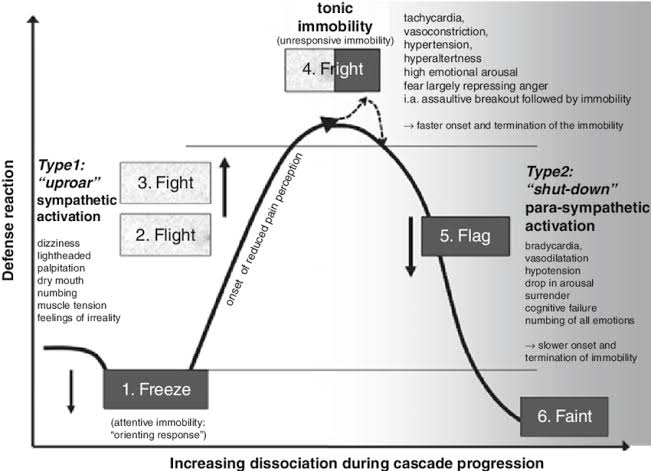[An address by Monsignor Ivan Illich to the Conference on InterAmerican Student Projects (CIASP) in Cuernavaca, Mexico, on April 20, 1968.
In his usual biting and sometimes sarcastic style, Illich goes to the heart of the deep dangers of paternalism inherent in any voluntary service activity, but especially in any international service "mission." Parts of the speech are outdated and must be viewed in the historical context of 1968 when it was delivered, but the entire speech is retained for the full impact of his point and at Ivan Illich's request.]
In the conversations which I have had today, I was impressed by two things, and I want to state them before I launch into my prepared talk.
I was impressed by your insight that the motivation of U.S. volunteers overseas springs mostly from very alienated feelings and concepts. I was equally impressed, by what I interpret as a step forward among would-be volunteers like you: openness to the idea that the only thing you can legitimately volunteer for in Latin America might be voluntary powerlessness, voluntary presence as receivers, as such, as hopefully beloved or adopted ones without any way of returning the gift.
I was equally impressed by the hypocrisy of most of you: by the hypocrisy of the atmosphere prevailing here. I say this as a brother speaking to brothers and sisters. I say it against many resistances within me; but it must be said. Your very insight, your very openness to evaluations of past programs make you hypocrites because you - or at least most of you - have decided to spend this next summer in Mexico, and therefore, you are unwilling to go far enough in your reappraisal of your program. You close your eyes because you want to go ahead and could not do so if you looked at some facts.
It is quite possible that this hypocrisy is unconscious in most of you. Intellectually, you are ready to see that the motivations which could legitimate volunteer action overseas in 1963 cannot be invoked for the same action in 1968. "Mission-vacations" among poor Mexicans were "the thing" to do for well-off U.S. students earlier in this decade: sentimental concern for newly-discovered. poverty south of the border combined with total blindness to much worse poverty at home justified such benevolent excursions. Intellectual insight into the difficulties of fruitful volunteer action had not sobered the spirit of Peace Corps Papal-and-Self-Styled Volunteers.
Today, the existence of organizations like yours is offensive to Mexico. I wanted to make this statement in order to explain why I feel sick about it all and in order to make you aware that good intentions have not much to do with what we are discussing here. To hell with good intentions. This is a theological statement. You will not help anybody by your good intentions. There is an Irish saying that the road to hell is paved with good intentions; this sums up the same theological insight.
The very frustration which participation in CIASP programs might mean for you, could lead you to new awareness: the awareness that even North Americans can receive the gift of hospitality without the slightest ability to pay for it; the awareness that for some gifts one cannot even say "thank you."
Now to my prepared statement.
Ladies and Gentlemen:
For the past six years I have become known for my increasing opposition to the presence of any and all North American "dogooders" in Latin America. I am sure you know of my present efforts to obtain the voluntary withdrawal of all North American volunteer armies from Latin America - missionaries, Peace Corps members and groups like yours, a "division" organized for the benevolent invasion of Mexico. You were aware of these things when you invited me - of all people - to be the main speaker at your annual convention. This is amazing! I can only conclude that your invitation means one of at least three things:
Some among you might have reached the conclusion that CIASP should either dissolve altogether, or take the promotion of voluntary aid to the Mexican poor out of its institutional purpose. Therefore you might have invited me here to help others reach this same decision.
You might also have invited me because you want to learn how to deal with people who think the way I do - how to dispute them successfully. It has now become quite common to invite Black Power spokesmen to address Lions Clubs. A "dove" must always be included in a public dispute organized to increase U.S. belligerence.
And finally, you might have invited me here hoping that you would be able to agree with most of what I say, and then go ahead in good faith and work this summer in Mexican villages. This last possibility is only open to those who do not listen, or who cannot understand me.
I did not come here to argue. I am here to tell you, if possible to convince you, and hopefully, to stop you, from pretentiously imposing yourselves on Mexicans.
I do have deep faith in the enormous good will of the U.S. volunteer. However, his good faith can usually be explained only by an abysmal lack of intuitive delicacy. By definition, you cannot help being ultimately vacationing salesmen for the middle-class "American Way of Life," since that is really the only life you know. A group like this could not have developed unless a mood in the United States had supported it - the belief that any true American must share God's blessings with his poorer fellow men. The idea that every American has something to give, and at all times may, can and should give it, explains why it occurred to students that they could help Mexican peasants "develop" by spending a few months in their villages.
Of course, this surprising conviction was supported by members of a missionary order, who would have no reason to exist unless they had the same conviction - except a much stronger one. It is now high time to cure yourselves of this. You, like the values you carry, are the products of an American society of achievers and consumers, with its two-party system, its universal schooling, and its family-car affluence. You are ultimately-consciously or unconsciously - "salesmen" for a delusive ballet in the ideas of democracy, equal opportunity and free enterprise among people who haven't the possibility of profiting from these.
Next to money and guns, the third largest North American export is the U.S. idealist, who turns up in every theater of the world: the teacher, the volunteer, the missionary, the community organizer, the economic developer, and the vacationing do-gooders. Ideally, these people define their role as service. Actually, they frequently wind up alleviating the damage done by money and weapons, or "seducing" the "underdeveloped" to the benefits of the world of affluence and achievement. Perhaps this is the moment to instead bring home to the people of the U.S. the knowledge that the way of life they have chosen simply is not alive enough to be shared.
By now it should be evident to all America that the U.S. is engaged in a tremendous struggle to survive. The U.S. cannot survive if the rest of the world is not convinced that here we have Heaven-on-Earth. The survival of the U.S. depends on the acceptance by all so-called "free" men that the U.S. middle class has "made it." The U.S. way of life has become a religion which must be accepted by all those who do not want to die by the sword - or napalm. All over the globe the U.S. is fighting to protect and develop at least a minority who consume what the U.S. majority can afford. Such is the purpose of the Alliance for Progress of the middle-classes which the U.S. signed with Latin America some years ago. But increasingly this commercial alliance must be protected by weapons which allow the minority who can "make it" to protect their acquisitions and achievements.
But weapons are not enough to permit minority rule. The marginal masses become rambunctious unless they are given a "Creed," or belief which explains the status quo. This task is given to the U.S. volunteer - whether he be a member of CLASP or a worker in the so-called "Pacification Programs" in Viet Nam.
The United States is currently engaged in a three-front struggle to affirm its ideals of acquisitive and achievement-oriented "Democracy." I say "three" fronts, because three great areas of the world are challenging the validity of a political and social system which makes the rich ever richer, and the poor increasingly marginal to that system.
In Asia, the U.S. is threatened by an established power -China. The U.S. opposes China with three weapons: the tiny Asian elites who could not have it any better than in an alliance with the United States; a huge war machine to stop the Chinese from "taking over" as it is usually put in this country, and; forcible re-education of the so-called "Pacified" peoples. All three of these efforts seem to be failing.
In Chicago, poverty funds, the police force and preachers seem to be no more successful in their efforts to check the unwillingness of the black community to wait for graceful integration into the system.
And finally, in Latin America the Alliance for Progress has been quite successful in increasing the number of people who could not be better off - meaning the tiny, middle-class elites - and has created ideal conditions for military dictatorships. The dictators were formerly at the service of the plantation owners, but now they protect the new industrial complexes. And finally, you come to help the underdog accept his destiny within this process!
All you will do in a Mexican village is create disorder. At best, you can try to convince Mexican girls that they should marry a young man who is self-made, rich, a consumer, and as disrespectful of tradition as one of you. At worst, in your "community development" spirit you might create just enough problems to get someone shot after your vacation ends_ and you rush back to your middleclass neighborhoods where your friends make jokes about "spits" and "w*tbacks."
You start on your task without any training. Even the Peace Corps spends around $10,000 on each corps member to help him adapt to his new environment and to guard him against culture shock. How odd that nobody ever thought about spending money to educate poor Mexicans in order to prevent them from the culture shock of meeting you?
In fact, you cannot even meet the majority which you pretend to serve in Latin America - even if you could speak their language, which most of you cannot. You can only dialogue with those like you - Latin American imitations of the North American middle class. There is no way for you to really meet with the underprivileged, since there is no common ground whatsoever for you to meet on.
Let me explain this statement, and also let me explain why most Latin Americans with whom you might be able to communicate would disagree with me.
Suppose you went to a U.S. ghetto this summer and tried to help the poor there "help themselves." Very soon you would be either spit upon or laughed at. People offended by your pretentiousness would hit or spit. People who understand that your own bad consciences push you to this gesture would laugh condescendingly. Soon you would be made aware of your irrelevance among the poor, of your status as middle-class college students on a summer assignment. You would be roundly rejected, no matter if your skin is white-as most of your faces here are-or brown or black, as a few exceptions who got in here somehow.
Your reports about your work in Mexico, which you so kindly sent me, exude self-complacency. Your reports on past summers prove that you are not even capable of understanding that your dogooding in a Mexican village is even less relevant than it would be in a U.S. ghetto. Not only is there a gulf between what you have and what others have which is much greater than the one existing between you and the poor in your own country, but there is also a gulf between what you feel and what the Mexican people feel that is incomparably greater. This gulf is so great that in a Mexican village you, as White Americans (or cultural white Americans) can imagine yourselves exactly the way a white preacher saw himself when he offered his life preaching to the black slaves on a plantation in Alabama. The fact that you live in huts and eat tortillas for a few weeks renders your well-intentioned group only a bit more picturesque.
The only people with whom you can hope to communicate with are some members of the middle class. And here please remember that I said "some" -by which I mean a tiny elite in Latin America.
You come from a country which industrialized early and which succeeded in incorporating the great majority of its citizens into the middle classes. It is no social distinction in the U.S. to have graduated from the second year of college. Indeed, most Americans now do. Anybody in this country who did not finish high school is considered underprivileged.
In Latin America the situation is quite different: 75% of all people drop out of school before they reach the sixth grade. Thus, people who have finished high school are members of a tiny minority. Then, a minority of that minority goes on for university training. It is only among these people that you will find your educational equals.
At the same time, a middle class in the United States is the majority. In Mexico, it is a tiny elite. Seven years ago your country began and financed a so-called "Alliance for Progress." This was an "Alliance" for the "Progress" of the middle class elites. Now. it is among the members of this middle class that you will find a few people who are willing to send their time with you_ And they are overwhelmingly those "nice kids" who would also like to soothe their troubled consciences by "doing something nice for the promotion of the poor Indians." Of course, when you and your middleclass Mexican counterparts meet, you will be told that you are doing something valuable, that you are "sacrificing" to help others.
And it will be the foreign priest who will especially confirm your self-image for you. After all, his livelihood and sense of purpose depends on his firm belief in a year-round mission which is of the same type as your summer vacation-mission.
There exists the argument that some returned volunteers have gained insight into the damage they have done to others - and thus become more mature people. Yet it is less frequently stated that most of them are ridiculously proud of their "summer sacrifices." Perhaps there is also something to the argument that young men should be promiscuous for awhile in order to find out that sexual love is most beautiful in a monogamous relationship. Or that the best way to leave LSD alone is to try it for awhile -or even that the best way of understanding that your help in the ghetto is neither needed nor wanted is to try, and fail. I do not agree with this argument. The damage which volunteers do willy-nilly is too high a price for the belated insight that they shouldn't have been volunteers in the first place.
If you have any sense of responsibility at all, stay with your riots here at home. Work for the coming elections: You will know what you are doing, why you are doing it, and how to communicate with those to whom you speak. And you will know when you fail. If you insist on working with the poor, if this is your vocation, then at least work among the poor who can tell you to go to hell. It is incredibly unfair for you to impose yourselves on a village where you are so linguistically deaf and dumb that you don't even understand what you are doing, or what people think of you. And it is profoundly damaging to yourselves when you define something that you want to do as "good," a "sacrifice" and "help."
I am here to suggest that you voluntarily renounce exercising the power which being an American gives you. I am here to entreat you to freely, consciously and humbly give up the legal right you have to impose your benevolence on Mexico. I am here to challenge you to recognize your inability, your powerlessness and your incapacity to do the "good" which you intended to do.
I am here to entreat you to use your money, your status and your education to travel in Latin America. Come to look, come to climb our mountains, to enjoy our flowers. Come to study. But do not come to help.



There's this one bit from Chomsky that is really good and it's this - you can tell what the opinion of the masses is towards the government when it comes to pay taxes.
To stretch that a little bit further, you can tell how enthusiastic people feel about their political candidates by how many of them go out and vote.
Instead of yelling at people to vote, start yelling at the government to pass legislation to make voting more accessible (in particular making it a public holiday on voting day) and start yelling at your political party of choice to start running candidates and election platforms that people feel enthusiastic about supporting. Or don't and let your shit hole country collapse. Either are acceptable options as far as I'm concerned.